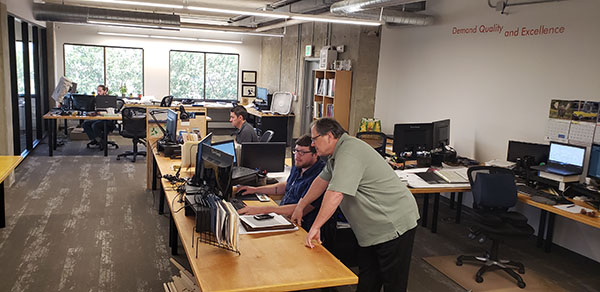What is Project Management?
Project management is the practice of applying knowledge, skills, tools, and techniques to complete a project according to specific requirements. It comes down to:
- Identifying the problem,
- A plan to solve the problem,
- Execute the plan.
However, it is not as simple as 1,2,3. There is a lot that goes into it at every stage of the process.
The roots of project management can be traced as far back as the building of the Pyramids in Giza and the Great Wall of China. As a matter of fact, it started at the beginning of time or humanity. It is human nature that one person surges as the leader in charge of a group to execute a project whatever the project is.

1, 2, 3 Steps of the Project Manager Role?
- Initiating: define the project.
- Planning: developing a plan for everyone to follow.
- Executing & Monitoring: create built and deliverables. Monitor and measure project performance to ensure it stays on schedule.
Why is the role of a project manager?
The project manager will help organize the project team and project processes: How?
- Have a more predictable project planning and execution process
- Adhere to project budgets, schedules, and scope guidelines
- Identify projects issues
- Resolve project roadblocks and escalate issues quicker and easier
- Become more efficient
- Improve collaboration across and within teams
The “Does or Do” of a Project Manager?
Although I have specified only 3 steps of project management, the responsibilities are a lot more than those 3 steps:
- Set up the plan: Project manager in charge of laying out a plan “work Plan” that must include the project scope, budget, timeline, and manpower. This is the most critical phase of project management success/failure.
- Assemble the team: A big part of the project’s success will depend on identifying the proper and the right team. Every team member will vary depending on the scope of the expertise and the functions needed to complete the project. Finding specialists and subject matter experts for each of the necessary tasks is ideal.
- Assign tasks: The project manager must provide a clear definition of specific tasks and timeline for every part of the project to their team. Although each team member will be responsible for their own assignments, many tasks will require collaboration from both internal and external team members. It is extremely important that the project manager or designated person of the team is the sole contact person with the entire team and owner/owner representative to better channel and manage the information that should disperse to the entire team to avoid any mistakes, discrepancies, inconsistencies, and misunderstanding. All the information from other team members collected shall be kept in the folder easily accessible to the entire team members. At EVstudio, we use Ajera to enusre all project information is accurate and accessible.
- Leading the team: Once the team has been assembled and their tasks have been assigned, the project manager must keep the machine well-oiled. This will include checking in on individuals for status updates, identifying and clearing roadblocks, negotiating disagreements, keeping team morale high, and providing training and mentoring.
- Managing budget: The project manager shall be able to prepare and lay out a work plan based on a signed contract budget to determine the time length and the manpower to undertake the project within budget.
- Managing timelines: As with the budget, project managers are tasked with keeping everything on schedule and the team is meeting their realistic set projected deadlines. The project manager shall communicate consistently with their team for status updates and maintaining a detailed schedule. The project manager shall consistently oversee the weekly schedule of the team members to better adjust the scheduled course and the work scope of the project team member accordingly.
- Engaging project owners: Owners or owner’s representatives play a large role in the project. They are typically influential people who can make decisions necessary to keep the project going. The project manager needs to maintain a good relationship and an open line of communication with owners/owner rep. to update them on the project progress and to avoid any misunderstanding that may occur in the lifecycle of the project.
- Lesson Learned: Relaying this entire set up experience for future use is a good practice and a good professional growth within any firm or company. This will help others avoid making the same mistakes or taking advantage of shortcuts discovered.
On a final note, we are ALL project managers, we all strive to come up with the best product to the clients so their smile will always be there when they think about us or see us years after. We should be responsible to submit a project that we all are proud of. If you would like more information on EVstudio’s Project Management team and services, contact us. We would be happy to show you how EVstudio’s management services are a cut above the rest.








